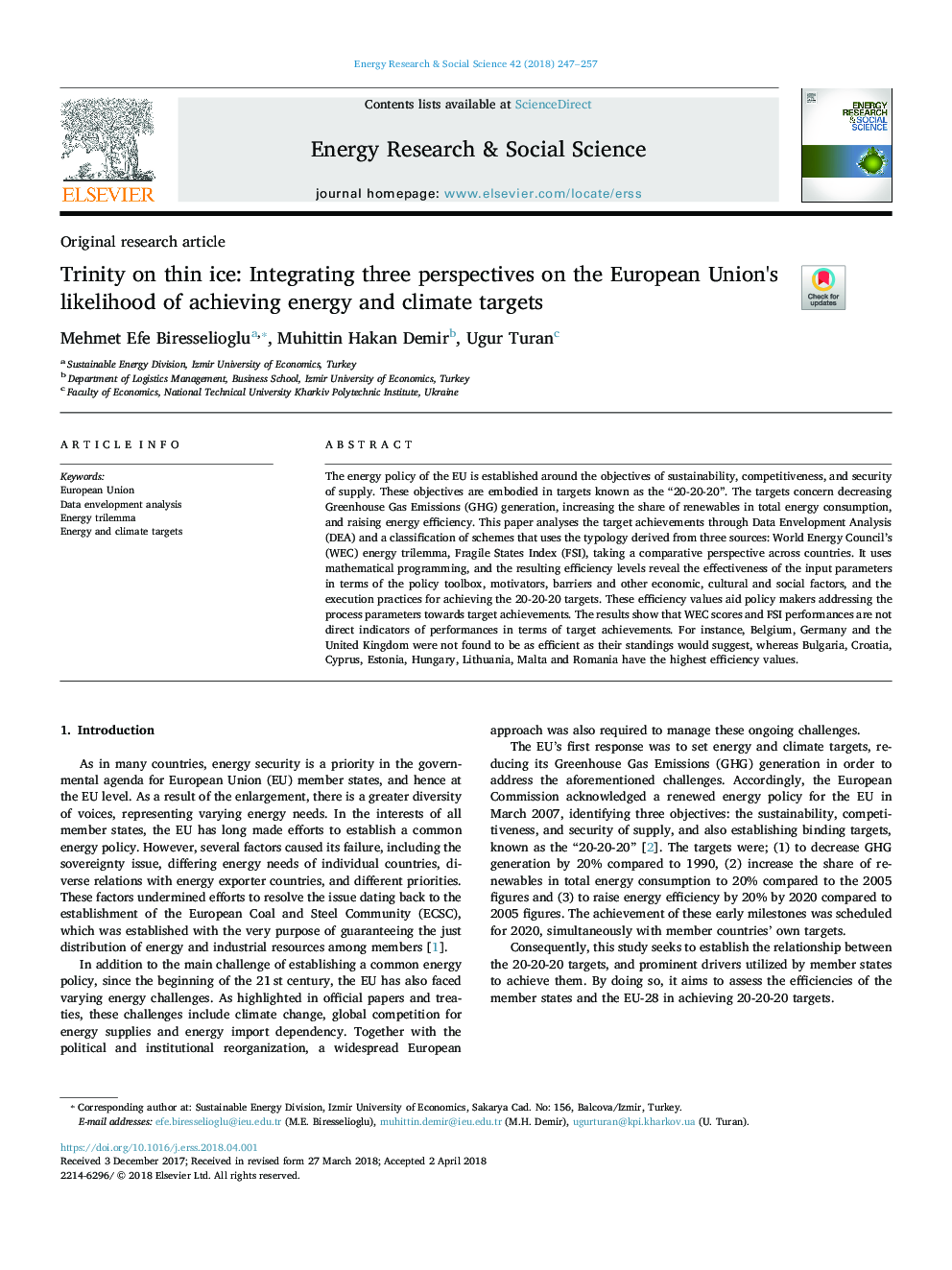| Article ID | Journal | Published Year | Pages | File Type |
|---|---|---|---|---|
| 6557288 | Energy Research & Social Science | 2018 | 11 Pages |
Abstract
The energy policy of the EU is established around the objectives of sustainability, competitiveness, and security of supply. These objectives are embodied in targets known as the “20-20-20”. The targets concern decreasing Greenhouse Gas Emissions (GHG) generation, increasing the share of renewables in total energy consumption, and raising energy efficiency. This paper analyses the target achievements through Data Envelopment Analysis (DEA) and a classification of schemes that uses the typology derived from three sources: World Energy Council's (WEC) energy trilemma, Fragile States Index (FSI), taking a comparative perspective across countries. It uses mathematical programming, and the resulting efficiency levels reveal the effectiveness of the input parameters in terms of the policy toolbox, motivators, barriers and other economic, cultural and social factors, and the execution practices for achieving the 20-20-20 targets. These efficiency values aid policy makers addressing the process parameters towards target achievements. The results show that WEC scores and FSI performances are not direct indicators of performances in terms of target achievements. For instance, Belgium, Germany and the United Kingdom were not found to be as efficient as their standings would suggest, whereas Bulgaria, Croatia, Cyprus, Estonia, Hungary, Lithuania, Malta and Romania have the highest efficiency values.
Related Topics
Physical Sciences and Engineering
Energy
Energy (General)
Authors
Mehmet Efe Biresselioglu, Muhittin Hakan Demir, Ugur Turan,
